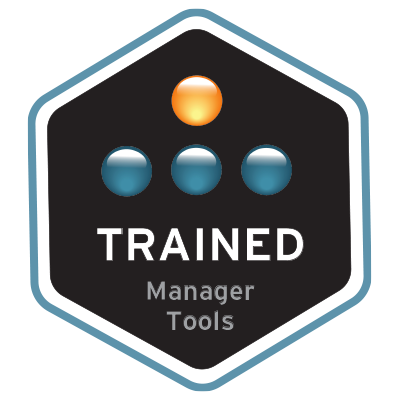![]()

in
Forums
I have received several complaints from skips about actions their managers have taken. I'm learning these are delicate situations because a) I want an open-door policy, especially for skips, b) I want to encourage managers and skips to solve problems on their own, and c) I don't want to encourage skips to come to me whenever there is any conflict with their manager. For background, I've been a trinity follower for many years, but I'm just beginning to ask my direct reports to roll it out with skips. Can anyone share advice, a relevant podcast, and/or processes they follow in these situations? Thanks!



Here's what I'd do
(upon hearing complaint from skip about manager)
"I am genuinely happy you've brought that to my attention, and I've made a notation about your feelings/report. Do you have concrete examples of what was said or done to support your position/statement? Can you tell me what preceded that? What were the unusual circumstances that caused this abnormal behavior? Or was the behavior common and normal?
"Did you mention this offensive behavior to your supervisor when it occurred? I wasn't there, so I have only your side of the story, which may very well be the whole story. Have you taken any steps to resolve this situation? Did you let your boss know about your concerns about this behavior? Is there something you could do in the future to prevent, lessen, or otherwise negate this complaint/behavior?"
The point is that many folks have legitimate complaints, but unless I observe the reported behavior personally, I don't have the opportunity to give feedback. Let's say my direct is yelling at his directs and otherwise blaming them for minor infractions. What I need to do is go and observe my direct to see if this complaint has merit. If you listen to the podcasts, there is one (it was my FIRST MT podcast, btw) where they talk about observing security guards smiling or not when greeting folks; it was a cast about a security manager developing metrics. One of the points they made was that if you just sit back and observe, folks start doing what they naturally do. They basically forget you're there and get on with doing their jobs the "normal" way. If the direct is doing what the skip says, you'll get to observe it personally.
If you then observe that your direct is doing the offensive behavior that is being reported, you can take the opportunity then, or in the future, to give feedback to your direct on the odious behavior. If you don't see it happen, you really can't give feedback on it, or give 100% credence that this is not a faulty observation or understanding by the skip. Note that I will only take action on something I've personally observed.
But make sure you ask the skip what THEY can do different to avoid the situation. Your direct wants to do a good job. Your skips want to do good jobs. If there's friction, find out what the friction is, try to figure out what's causing it, and give feedback to try to lessen the friction, even if you have to "Break the rules" and initiate a dialog with the skip. For instance, "I observed your supervisor yelling. He may have been out of line for yelling, but he saw that workplace safety rules were being broken, and needed to immediately stop the potentially dangerous behavior."
Though, even in that case, I'd mention to the direct that yelling is probably not the best way to go, unless the danger is imminent. "Get out from under that suspended load!" is probably something I'd yell, too, if I saw someone potentially putting his life at risk.
DonM